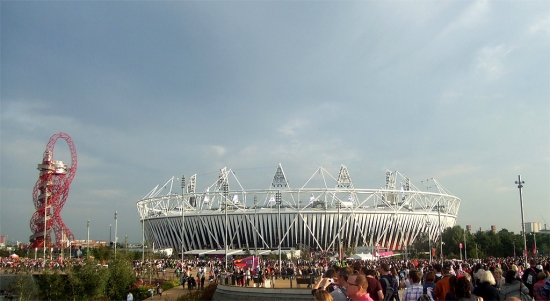It has been announced that West Ham will be anchor tenants for the Olympic Stadium after the government agreed to put in an additional £25m towards the costs of transforming the venue.

The extra money takes the Treasury’s contribution to around £60m, whilst the modification of the stadium could cost between £150m and £190m.
However the deal was secured only after West Ham agreed to boost their own funding of the development by £5m, to £15m. They will move in from August 2016 and will pay around £2m a year rent.
The refurbishment plans will see the roof extended and the seating capacity scaled down from 80,000 to 60,000, with a retractable system allowing the venue to be transformed from an athletics arena to football stadium within days.
The London Legacy Development Corporation (LLDC) will commence work on the roof in the autumn and officials hope it will be completed for the Rugby World Cup in 2015.
After that the stadium will close again to reconstruct the lower seating bowl and re-open in time for West Ham to start playing their games there in August 2016.
Although West Ham was selected as preferred bidders by the LLDC three months ago, there were still fears the agreement could fail over how to finance the transformation of the stadium.
At first the club had been cautious about paying anything, but over time they increased their contribution to £10m and are now prepared to pay £15m.
The rest of the money will be taken from a range of sources, including London Mayor Boris Johnson’s budget, around £20m of borrowings by the LLDC and a £40m loan from Newham Council.
To ensure the 99-year lease, West Ham also had to reach agreement to pay a proportion of any future sale of the club back to the LLDC.
Johnson argued that the move into the stadium will significantly boost West Ham’s value and that the public purse should share in any profits made from a sale by owners David Gold and David Sullivan.
In response, West Ham has agreed to pay a one-off bonus back to the LLDC if they sell the club in the next 10 years. West Ham says that is a sign of Gold and Sullivan’s long-term pledge to the club.
The deal will be a huge relief to the government and the mayor, who feared the stadium, could become a major drain on taxpayers.
As well as paying £2m-a-year in rent, the club will share catering and hospitality takings with LLDC but it is understood West Ham will take all ticket and merchandising revenue.
Leyton Orient chairman Barry Hearn is pursuing a legal review of the decision but the LLDC is confident that will not stall the process.
Sources insist Hearn is questioning the LLDC’s failure to do a joint contract with the Premier League team and Leyton Orient, rather than the decision to place West Ham in the stadium.
Initial talks with the British Olympic Association and the International Olympic Committee have begun on whether they can use the word “Olympic” in any future naming of the stadium.
This is thought to be highly unlikely unless the benefactor of the stadium is also one of the Olympic movement’s big commercial partners.
Previous Post
Alliance Buys Chicago Burnham Center